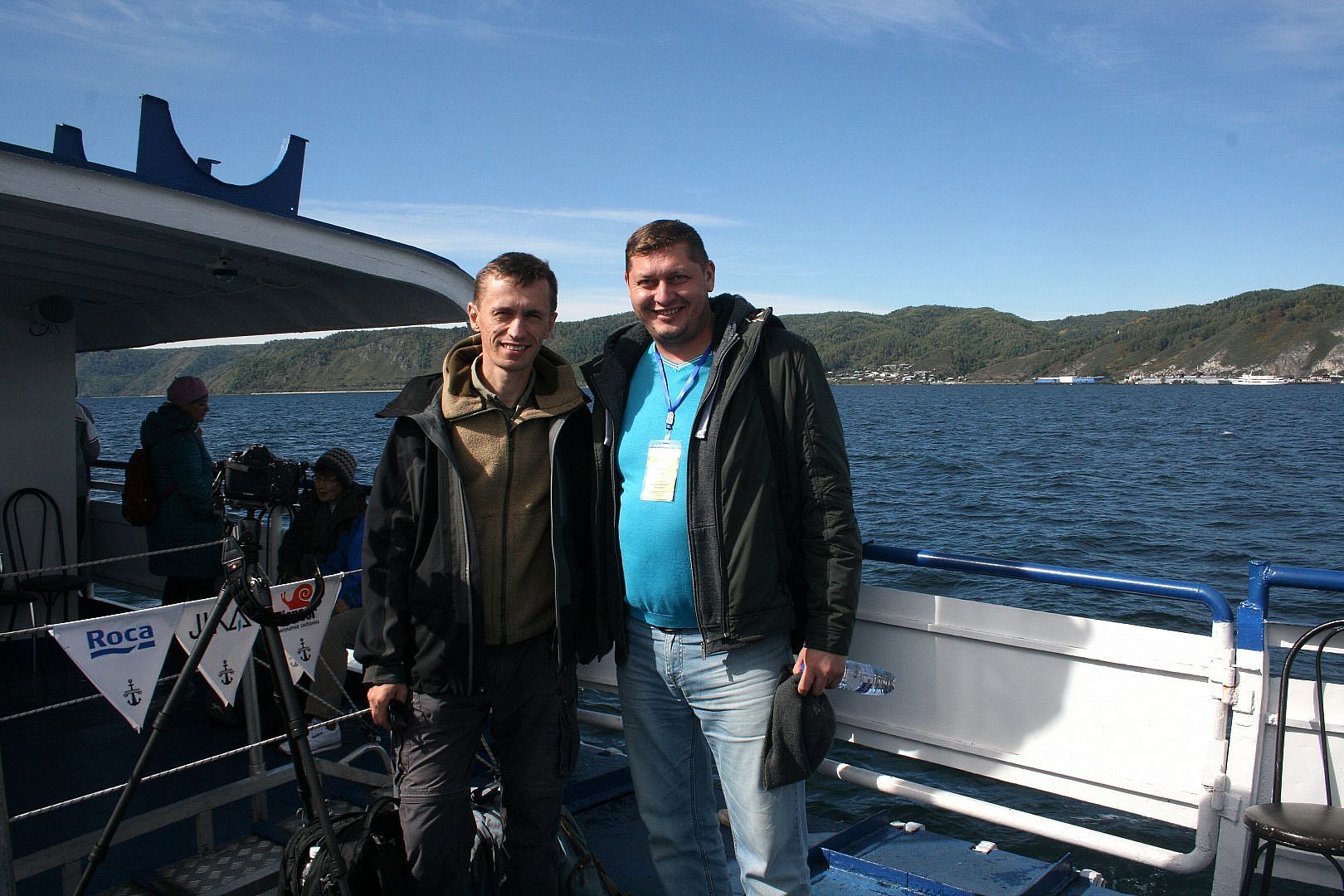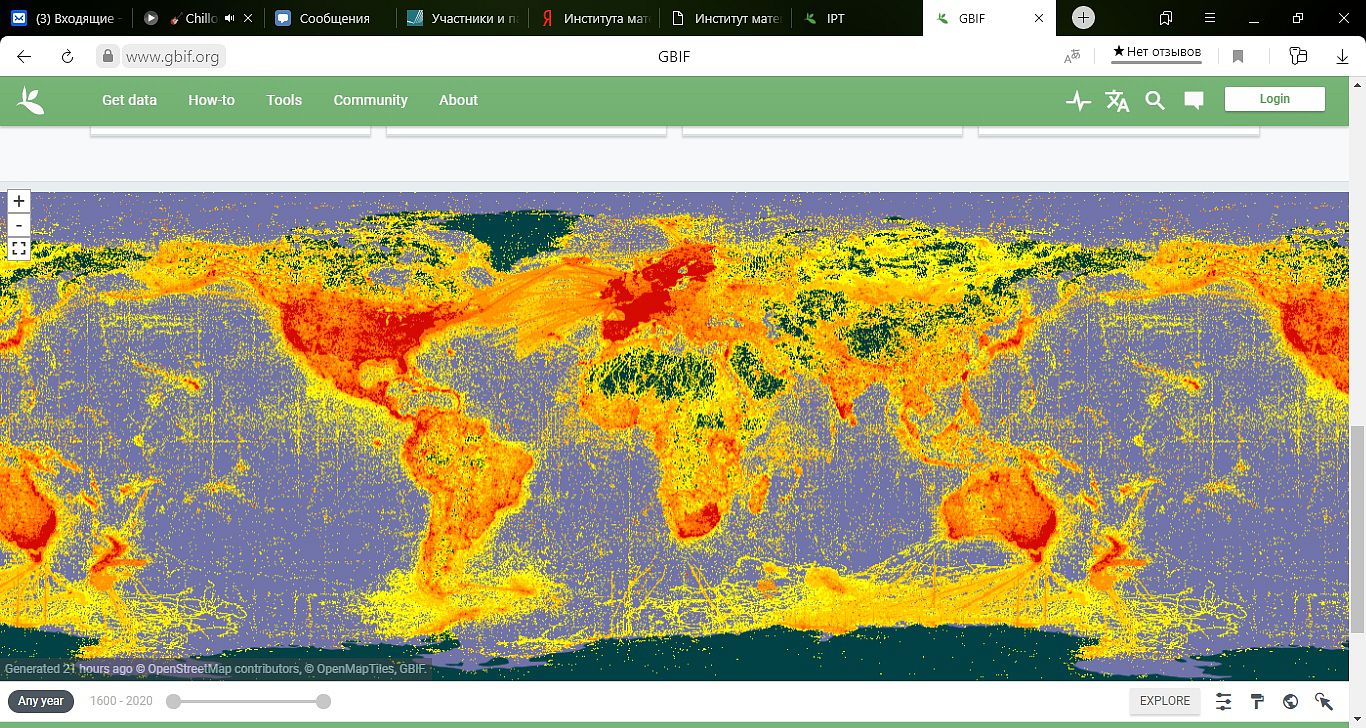Altai State University Biologists cooperate with GBIF Global Information System
 The GBIF secretariat is in Copenhagen (Denmark), and the project participants, who are also technical coordinators of the data publisher pages, are unevenly distributed around the world. All of them are enthusiastic scientists from different countries who have been forming a single, and most importantly, generally accessible database of biodiversity of the planet for more than ten years. Three years ago, biologists of Altai State University officially joined them.
The GBIF secretariat is in Copenhagen (Denmark), and the project participants, who are also technical coordinators of the data publisher pages, are unevenly distributed around the world. All of them are enthusiastic scientists from different countries who have been forming a single, and most importantly, generally accessible database of biodiversity of the planet for more than ten years. Three years ago, biologists of Altai State University officially joined them.
All this time, they not only replenished the global portal with biological data from the transboundary territory of the Altai Mountainous Country (hereinafter - the AMC), but also launched a number of interesting projects, including educational ones. Alexey Vaganov, technical coordinator of the page of the flagship university in GBIF, told us about this project.
Global Biodiversity Information Facility is the Global Biodiversity Information System. It was formed in 2001 at a meeting of the Megascience Forum, which was held as part of the conference "Organizations for Economic Cooperation and Development". The aim of the project was to create a global large-scale portal of data on biological diversity of the entire world. Of course, even with the collaboration of scientists it was impossible to do, so the mission of GBIF was to stimulate the interest of biologists around the world in digitizing data from natural science collections, creating an electronic catalog of the names of organisms, as well as promoting the basics and developing the theory of computer science of biodiversity. Combining data on the biological diversity of the planet from scattered sources expanded the capabilities of scientists around the world in their desire to accumulate, exchange and process information.
The main customer for the development of the portal is the United Nations, guided by the Convention on Biological Diversity. The portal, in turn, provided scientific, educational and other interested institutions all over the world (now there are 1610 of them - official publishers) the availability and compatibility of the data posted on it. The portal developers also encouraged the development of open source tools, standards and specifications through research awards.
At the time of the beginning of AltSU's cooperation with GBIF, in 2017, information about more than 8,000 million findings became available to users who looked at the page of the information system for biologists. Today the figure is more impressive - about one and a half billion ...
Alexey Vaganov: "Of course, data on the distribution of plants and animals, which are stored primarily in the South Siberian Botanical Garden, as well as at the Insitute of Biology or in private collections and depositories of scientists and graduates of AltSU, has become interesting for GBIF. When you visit the resource (gbif.org), the world map on the main page with red-yellow epicenters of activity immediately catches your eye. However, these red epicenters represent not only the occurrence points of living organisms, but also the activity points of institutions engaged in the digitalization of data on their distribution over a given territory. So, we need to boost the activity of Russian scientists".
 According to Alexey Vaganov, GBIF will be primarily interested in materials from the Herbarium (ALTB) of AltSU, which occupies the 4th place among university herbariums in terms of the collection size. At the same time, the information accumulated by entomologists, ornithologists, botanists at AltSU, mainly about the territory of Altai, can be no less valuable. The key role in the formation of such a colossal collection of Altai plants as the ALTB Herbarium, played botanists of AltSU under the guidance of Professor Alexander Shmakov, Director of the South-Sibirian Botanical Garden.
According to Alexey Vaganov, GBIF will be primarily interested in materials from the Herbarium (ALTB) of AltSU, which occupies the 4th place among university herbariums in terms of the collection size. At the same time, the information accumulated by entomologists, ornithologists, botanists at AltSU, mainly about the territory of Altai, can be no less valuable. The key role in the formation of such a colossal collection of Altai plants as the ALTB Herbarium, played botanists of AltSU under the guidance of Professor Alexander Shmakov, Director of the South-Sibirian Botanical Garden.
The mountain system of Altai and Sayan is included in 200 key ecoregions of the world. On an area of only 10% of the territory, 90% of the biodiversity of our planet is concentrated.
Thus began the cooperation of Altai State University with the Global Biodiversity Information System, which was supported by the signing of an agreement. Within its framework, from May 2018 to May 2020, biologists from the flagship university presented more than 18,000 records in GBIF (type “Occurrence Data” - data sets for individual findings). The recordings were supported by digital images of herbarium sheets of the collection funds of the Altai State University Herbarium.